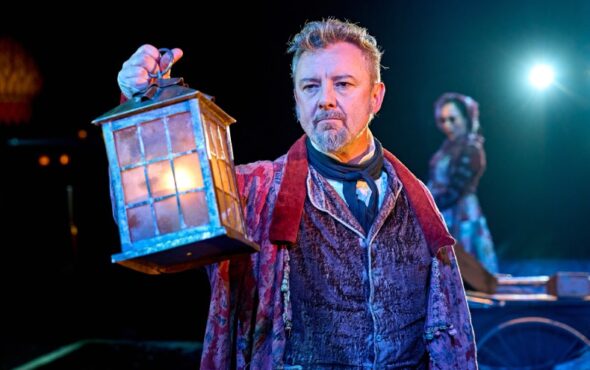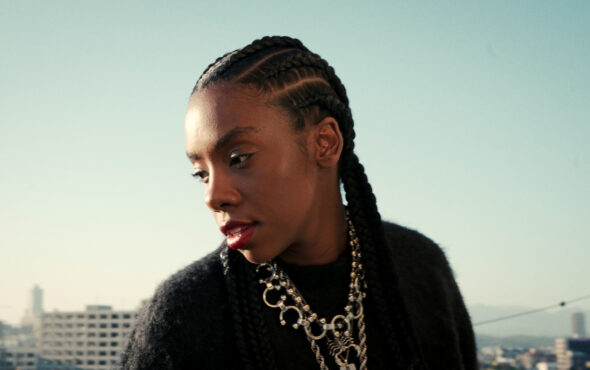
LGBTQ+ theatre should put art before politics and stop pushing a social agenda, said top British playwright Mark Ravenhill ahead of his “queer reinvention” of Puccini’s opera “La Boheme”.
Known globally for his 1990s megahit “Shopping and Fucking”, Ravenhill said LGBTQ+ arts must first and foremost entertain; he even rewrote the official website description of his new opera to reflect that priority.
“I’m not particularly interested in art as an agent of social change,” he told the Thomson Reuters Foundation in a telephone interview ahead of Thursday’s gala opening.
“I think what we can do …. is emphasise the fun and joy of those things. We don’t have to say this is terribly socially important and here are the issues that we’ve covered.”
Ravenhill’s production of Puccini’s tale of 1890s bohemian Paris life, playing at London’s King’s Head theatre, casts two gay men in the lead roles of poet Rodolfo and the central female character of lowly seamstress Mimi.
The show, which runs until May 28, has parallels with his own life of 30 years ago, according to Ravenhill, who is now 55.
“A group of flatmates struggling to pay the bills; the arrival of a troubled but ultimately doomed newcomer; the hovering presence of the older man with money,” he recollected in the Guardian newspaper.
“I see that my 27-year-old self had a lot in common with Rodolfo and Mimi and their bohemian cohort.”
Ravenhill said he made the gender swap for artistic reasons rather than to hammer home any LGBTQ+ message.
“I guess there’s something political about (giving the female role to a man),” Ravenhill said.
“But there’s also just something joyful and beautiful and artistic about it. So (I’m) much more interested in how something like the LGBTQ thing can open up new exciting, fresh stories.”
Ravenhill has been a long-time critic about the cliched state of LGBTQ+ arts, which he said too often charcterised gay men as either dark and deadly or light and fluffy.
In 2007, he wrote a column for the Guardian, headlined “My pink fountain pen has run dry”, in which he said how “every time I try to write ‘gay’, I start yawning.
“Why do I have this strong sense that ‘writing gay‘ is a project that is now totally over?”
Ravenhill laughed when reminded of his words of 15 years ago. But has no regrets, saying things “did get a bit boring”.
However, his interest came back with a “queer writers’ group” he ran at London’s prestigious and often experimental Royal Court Theatre, which launched the careers of playwright Caryl Churchill and Oscar-winning film director Danny Boyle.
“And suddenly it was a whole new generation and it was much more diverse,” Ravenhill said.
“There were trans people and there were non-binary people (who do not define themselves as either male of female) and there were a lot of women and Black and global majority people in this group.
“And I thought, ‘Hang on, this is interesting,'” he added.
“It’s not like being stuck with the same skinny white boys in a room, which for me palled after a few years.”
PLAYS THAT PACK A PUNCH
“Shopping and Fucking”, which premiered in 1996 and explored themes of consumerism and sexuality, became a global sensation.
Alongside works by fellow playwright Sarah Kane, Ravenhill was feted as part of the 1990s British wave of newly confrontational “in yer face” playwrights.
And it changed his life – both professionally and financially, said Ravenhill.
“It got me into the bigger theatres and it got produced around the world,” he said.
“I had lots of opportunities to travel and see different cultures and different countries. So, going from being able to afford a long weekend abroad once every year, I was suddenly just invited to travel a lot.”
Now, as co-artistic director of the King’s Head pub theatre since August, Ravenhill’s eyes are set on a new generation of LGBTQ+ talent, such as Robert O’Hara, an up-and-coming U.S. playwright he is keen to work with at some point.
So long as there’s still room for the old guard, he laughed.
“If it was too healthy they might squeeze me out, so I don’t want it to be too healthy.”
Reporting by Hugo Greenhalgh; Editing by Lyndsay Griffiths.
GAY TIMES and Openly/Thomson Reuters Foundation are working together to deliver leading LGBTQ+ news to a global audience.



